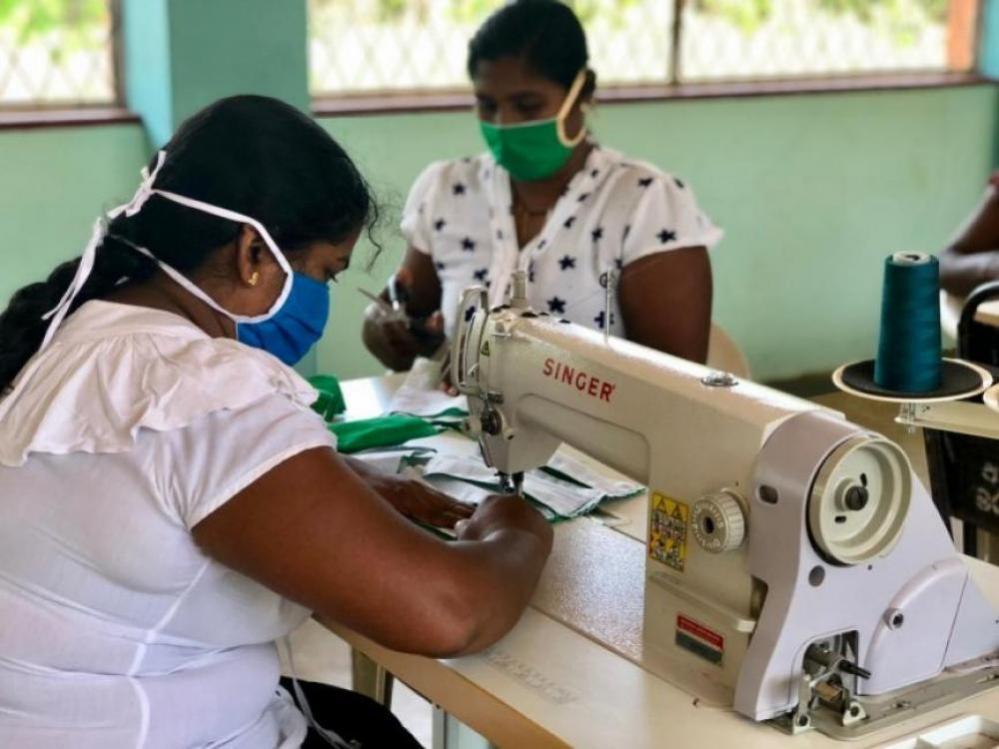When Ireshika Somapala, a mother of two from Sri Lanka’s North Central district of Anuradhapura, started a six-month training in tailoring in February, little did she know she would soon become part of the response to the global Coronavirus pandemic. Ireshika joined other women from the nearby villages to sew 5,000 masks for the district’s hospitals and their communities. Putting their newly acquired sewing skills to good use, they helped their communities to reduce the spread of COVID-19 during an extended period of curfew.
USAID’s Social Cohesion and Reconciliation (SCORE) initiative, implemented by Global Communities, supported the tailor training, along with initial material and one sewing machine, to start sewing masks. Local communities and a private apparel establishment in the area contributed enthusiastically to provide more sewing machines and material while the village’s funeral society provided the space for women to carry out the work.
As the women sewed together, they shared personal stories and built relationships. Their work is now creating a stronger network between villages. This collaborative opportunity has given Ireshika and the rest of the women a sense of pride and self-worth. But most importantly, this opportunity paved the way for financial independence. The women are now producing masks to sell in the local market and earning an income to provide for their families.
USAID’s Social Cohesion and Reconciliation activity (SCORE) helps rural communities to uplift lives, and advance social cohesion and reconciliation. Since the beginning of the pandemic in Sri Lanka, SCORE has responded to the needs of rural communities across the island. SCORE provided hospitals in some regions with essential items such as sewing and washing machines, personal protective equipment, and sanitizers. The project also refurbished an isolation unit for COVID-19 patients in a northern hospital. In addition, a SCORE-supported social media youth group shares reliable information from the Sri Lankan health authorities, providing accurate guidelines on COVID-19 prevention and countering misinformation among rural communities.

Leave your comments
Login to post a comment
Post comment as a guest